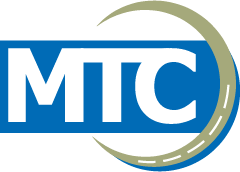Project Details
17-602
02/01/17
10/31/20
Iowa Department of Transportation
Researchers
Alice Alipour
alipour@iastate.edu email >Structure and Infrastructure Engineer, BEC
Neal Hawkins
hawkins@iastate.edu email >Director Research Administration, ISU
About the research
Flooding, as a predominant destructive hazard, leads to significant direct damage to physical road infrastructure and causes noticeable indirect losses to the communities that rely on the road network. Therefore, it is important to understand the degradation of the network caused by floods to help decision makers and transportation asset managers take adequate preventive measures for floods while preparing for consequences of possible failures.
The goal of the sequence of phases for this project was to develop a system-level resilience framework that can eventually be used as a tool by Iowa Department of Transportation (DOT) engineers to optimize the pre-event mitigation and post-event recovery strategies and prioritize investments while ensuring that the transportation system is capable of absorbing shocks, adapting to changing conditions, and rapidly recovering from disruptions.
The team worked on defining and validating appropriate procedures that will form the cornerstones of resilience assessment and enhancement strategies customized for Iowa’s highway transportation network.
The objectives of this systematic research effort, as documented in this report, were as follows:
- Define resilience goals or targets (e.g., functionality level after disruptive flood events)
- Understand system characteristics (e.g., resolution level on the network)
- Characterize disruption scenarios (e.g., extreme flood at various locations on Iowa road network)
- Estimate the consequences of failures (e.g., level of physical loss, traveler delay, economic loss, loss of accessibility)
- Find optimized solutions for possible mitigative impacts, especially in hotspot regions using an actual case study region
